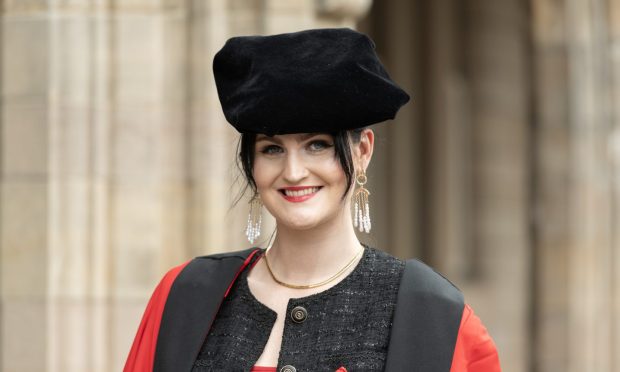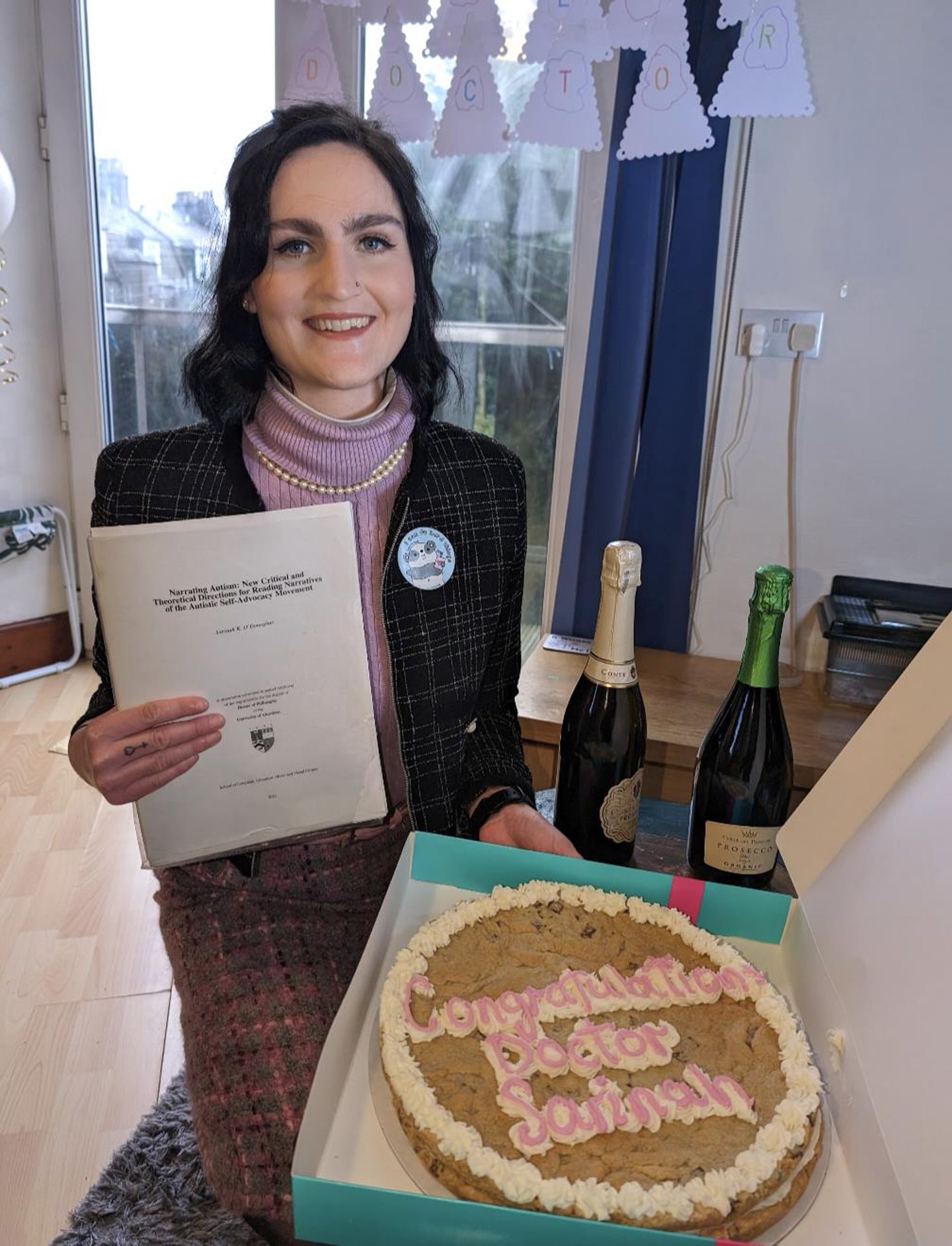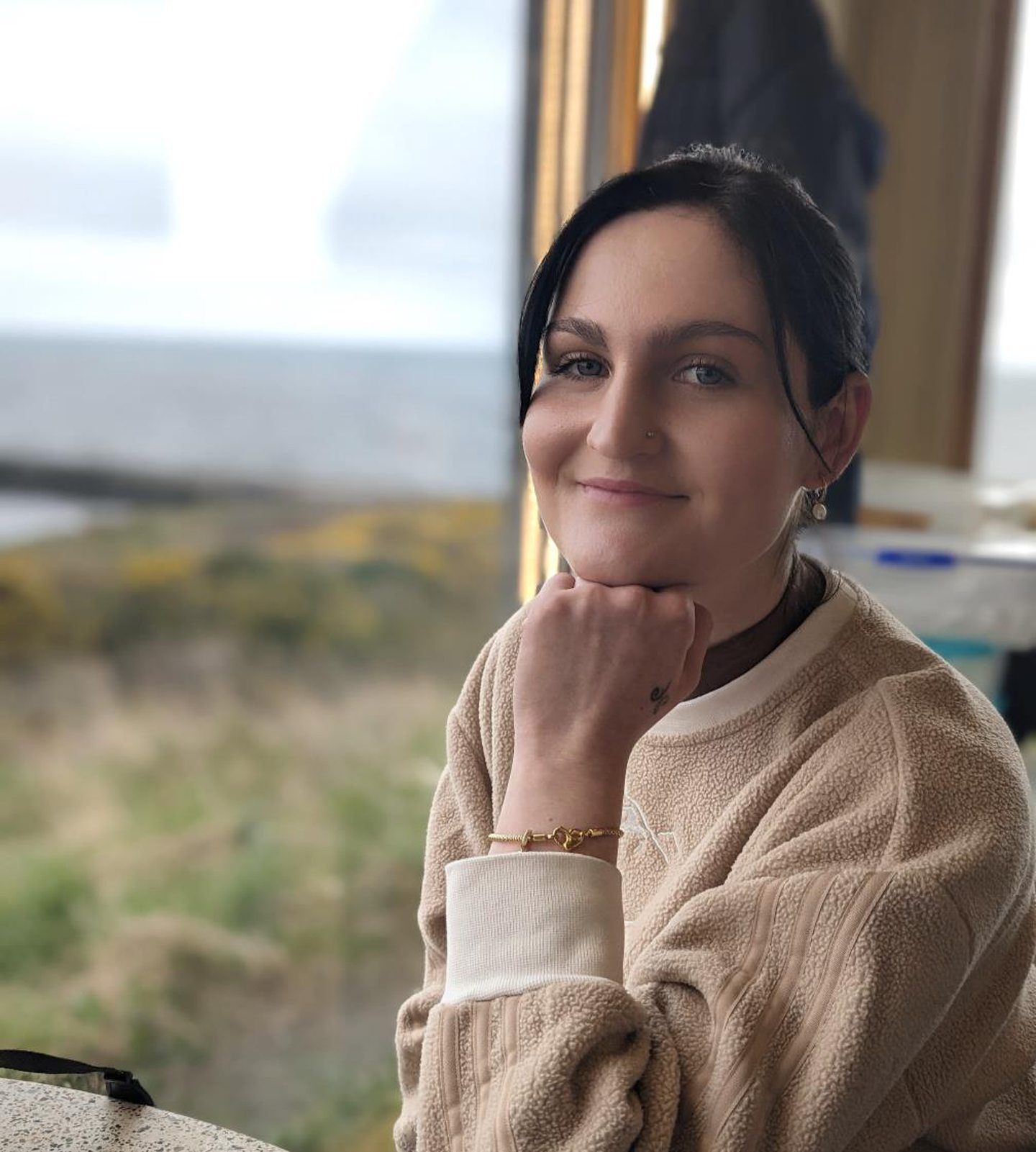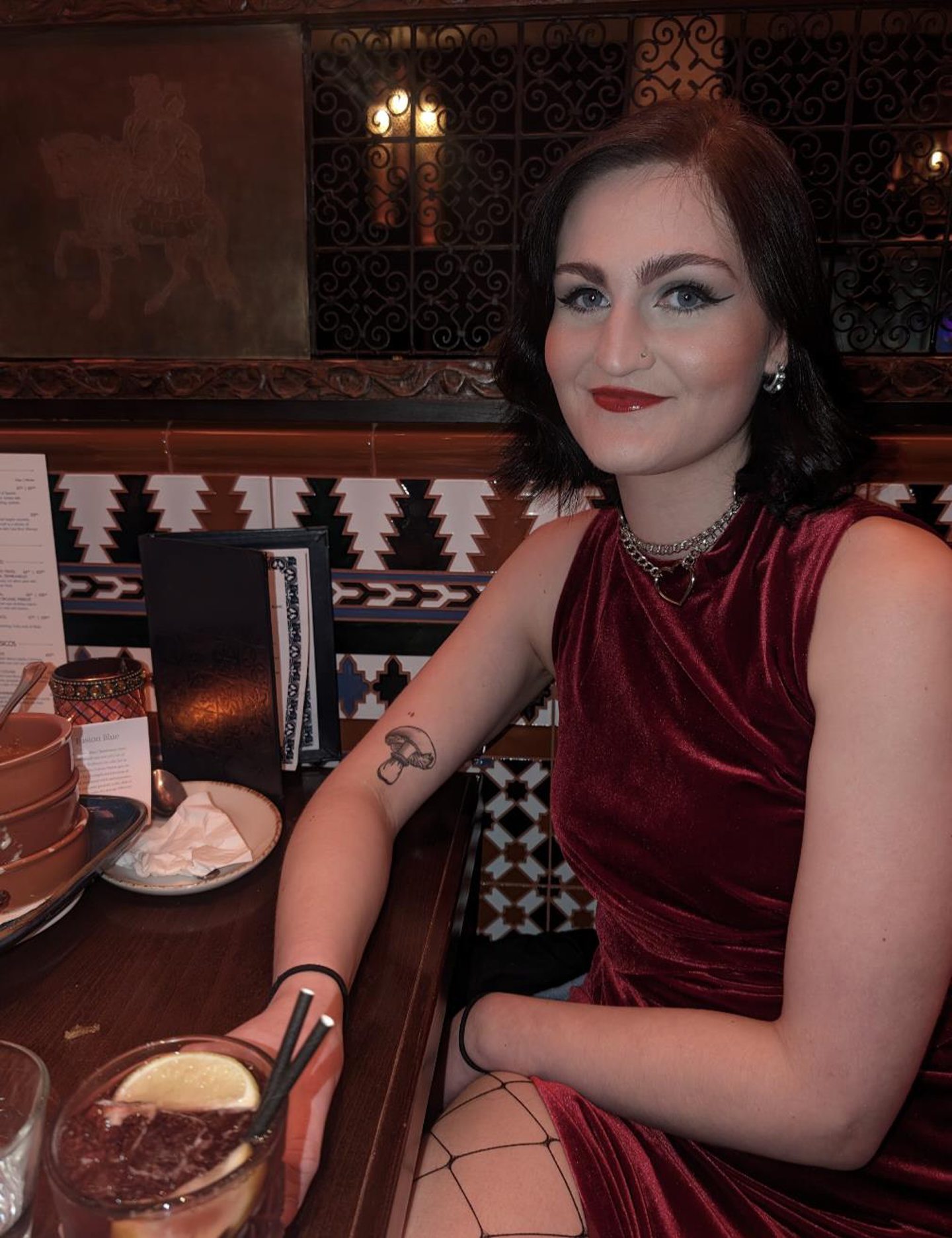Crossing the stage to collect a doctorate in English is a journey Sarinah O’Donoghue never thought she’d make.
The 28-year-old from Aberdeen, who is autistic, struggled to settle at school.
She had to self-study other qualifications to make up for those she missed during her disrupted education.
The long road from Hazlehead Academy to Aberdeen University
“I started out at Hazlehead Academy, but I didn’t know I was autistic,” said Sarinah, who was diagnosed with autism aged 20.
“My teachers at the time didn’t understand me or know how to help.
“This caused behavioural problems which got me excluded from school.
“I then moved to Torry Academy when I was 14 – so the beginning of S3 – where I was valued for my strengths.
“I managed to go from exclusion to achieving five Highers.”
She made it to Glasgow University to study English Literature at undergraduate level, but again struggled to find an environment that suited her.
During her fourth year things began to unravel, and she left without a degree and wondering if her university dreams were over.
By the time I started at Glasgow University I was already experiencing some mental health problems, and the environment wasn’t right which exacerbated things further.
“By the time I got to my fourth year I was very unwell and took a year out.”
After some time out, Sarinah transferred to Aberdeen University in her final year
Driven on by her love of books and determination to succeed, Sarinah transferred to Aberdeen University to complete her final year.
“I came to Aberdeen University thinking ‘just get your dead down and away from uni’, but I absolutely loved it,” she said.
“So much so that once I had graduated with my undergraduate degree I didn’t want to leave and began a PhD immediately.
“I just fitted in and the whole department was so supportive – the staff were just amazing.
“By the end of my undergraduate studies I’d won prizes for my work, including the dissertation prize, and I was awarded the Lucy Fellowship which enabled me to do my PhD here.”
Having faced difficulties throughout her educational journey, Sarinah understands the importance of the right environment, and she made vlogs of her PhD journey and produced tips for those studying from home during the pandemic to support others.
“I think everyone who starts a PhD has a degree of imposter syndrome,” she added.
“When you’re an undergraduate student you think of those taking doctorates as the pinnacle of academic success and as people who have their stuff together at all times.
“Then when you are in that position you realise it’s far from the truth!
“I wanted to document my journey to help people realise that becoming a doctor of academia isn’t an impossible pursuit. I am the proof of that.”
Sarinah hopes to shape national change in autism
Sarinah’s PhD research focused on representations of autism in literature and popular culture, and she hopes her work will contribute to changing perceptions and attitudes about what autism is and who it affects.
“Autistic people often feature in stories, films or TV series, but rarely do they have control of the narrative,” she says.
“We cannot study autism only through the lens of medicine, psychology, or science – writing, performance and the arts directly shape societal attitudes.
“I also know from personal experience that this can be a powerful tool for self-advocacy.”
Sarinah is now working for Autism and Neurodiversity North Scotland (A-ND) in Aberdeen. She hopes to use her research and experience to input into policy which could shape change at a national level.




Conversation